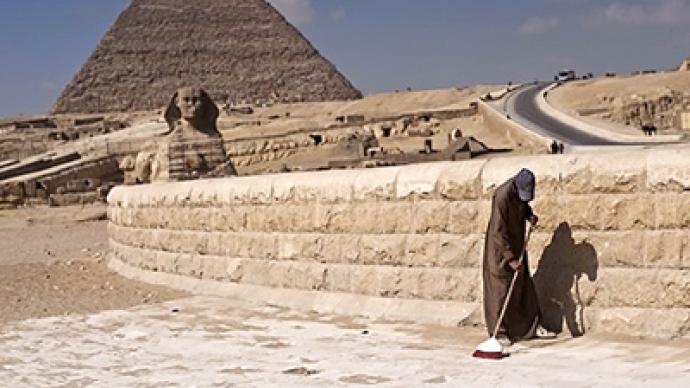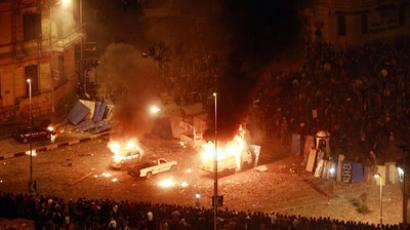Egypt’s revolution is no tourist best-seller

Egypt, which was one of the first to roll protests into the Arab world, is still feeling the echo of its own revolt. Despite still ongoing demonstrations, there are concerns the uprising may end up costing the jobs of more than just the President.
After decades of protest abstinence, Egyptians are tasting their newly found liberties and are still unable to get enough of it. Even the resignation of Hosni Mubarak's closest associates as Prime Minister, one of the key demands of the opposition, did not take the steam out of the Tahrir Square's rally. In fact, the number of tent city residents seems to be getting even higher.Nazli Hussein has been camping on the square for three weeks. Formerly a special needs educator, she has quit her job to be here and so far has no intention of looking for a new one.“We are going to stay here until all the demands have been met,” says Nazli. “The demands are being met one by one, but it is slow. The process is taking longer than expected.”The revolution is not over yet but it is already becoming a brand. Street vendors who peddled ousted President Mubarak’s portraits just two months ago have now switched to revolution memorabilia.“People love revolution!” says Mohammad, a protester. “Everybody wants to be a part of it. Flags are selling well.”The word “Tahrir” means “liberation” in Arabic, a fitting name for a square that has become a focal point in ending President Mubarak's autocratic rule. Tahrir Square is packed with protesters again, only now instead of resignation demands they are chanting celebratory slogans.This revolutionary intoxication is totally natural. Yet, a few profiteering vendors notwithstanding, the Egyptian revolution comes at a high cost, depriving the country of millions dollars every day.Branded as a symbol of free Egypt, Tahrir Square stands in a stark contrast to another Egyptian attraction, the slave-built pyramids. The rallying crowds have scared away visitors, with lost revenues already exceeding one billion dollars.“We were truly busy every day before that problem,” complains Mona Muhhamed, a tour guide. “It was good business, after that problem – no good.”Many people here do not believe that the Cairo protests will significantly alter their life prospects. For them, freedom comes with their ability to feed their families – that, for now, remains far from certain."Business is growing very slowly at the moment. We have almost like five or seven percent of the clients and most of them are coming from the Middle East, none coming from Europe,” says business owner Farag Hawash Mahmoud.It is not that Egyptians like Mona Muhhamed or Farag Hawash Mahmoud do not support the revolution – they are just the first to discover its bitter-sweet taste and to realize that revolutionary intoxication is almost always followed by headache.














